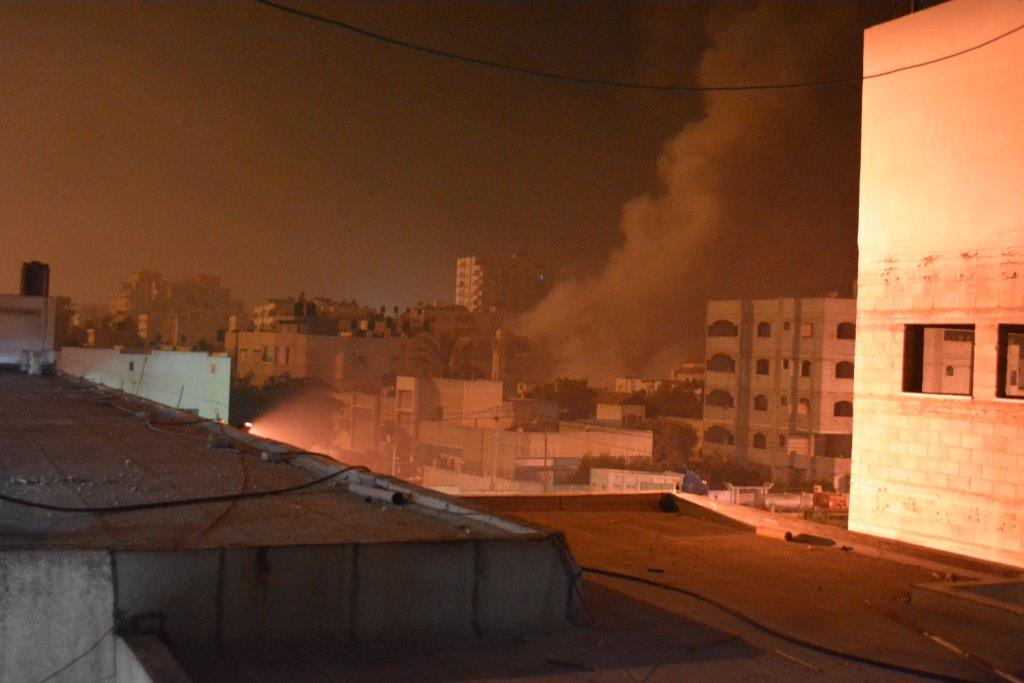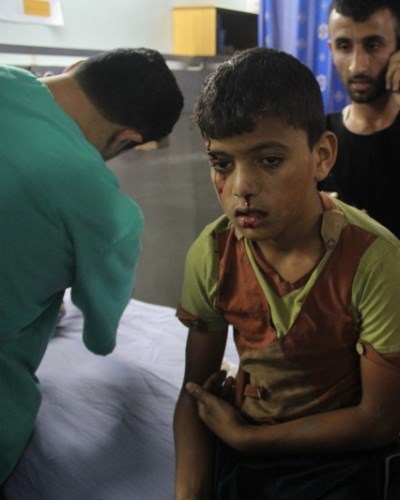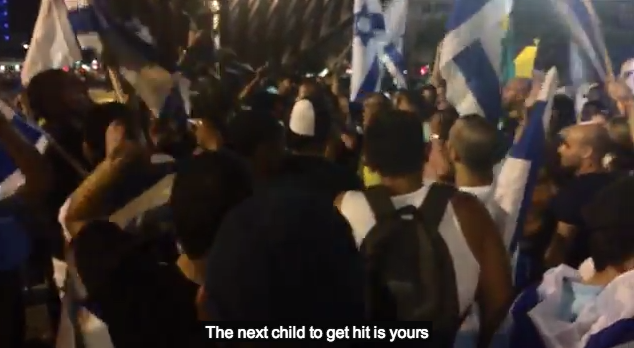Tag: Gaza
-
Gaza: Black sky turns orange
30th July 2014 | Charlie Andreasson | Gaza, Occupied Palestine Since July 25th, international volunteers, including activists from the International Solidarity Movement (ISM) and other groups have begun a constant protective presence in various locations at the al-Shifa Hospital. Below is a journal extract from an ISM volunteer during his shift at the hospital on July 28th. There had…
-
Gaza Ministry of Health: ‘Muslim holy days marred by genocide in Gaza’
29th July 2014 | Gaza Ministry of Health | Gaza, Occupied Palestine The Ministry of Health Gaza is pained to express its deep sadness and outrage at the Israeli attacks on Gaza on our holy days of Eid al-Fitr. In the last 24 hours, 120 people have been killed, bringing the total to 1,156. Particularly distressing…
-
Video: Israelis in Tel Aviv chanting, “There’s no school tomorrow, there’s no children left in Gaza! Oleh!”
29th July 2014 | International Solidarity Movement | Tel Aviv, Occupied Palestine Israelis in Tel Aviv, on 26.7.2014, the 19th day of Israel’s massacres in Gaza, cheer the genocide on: “There’s no school tomorrow, there’s no children left there [in Gaza]! Oleh!” Every evening, in Tel Aviv, right wing marchers flood the streets, waving Israeli flags…



